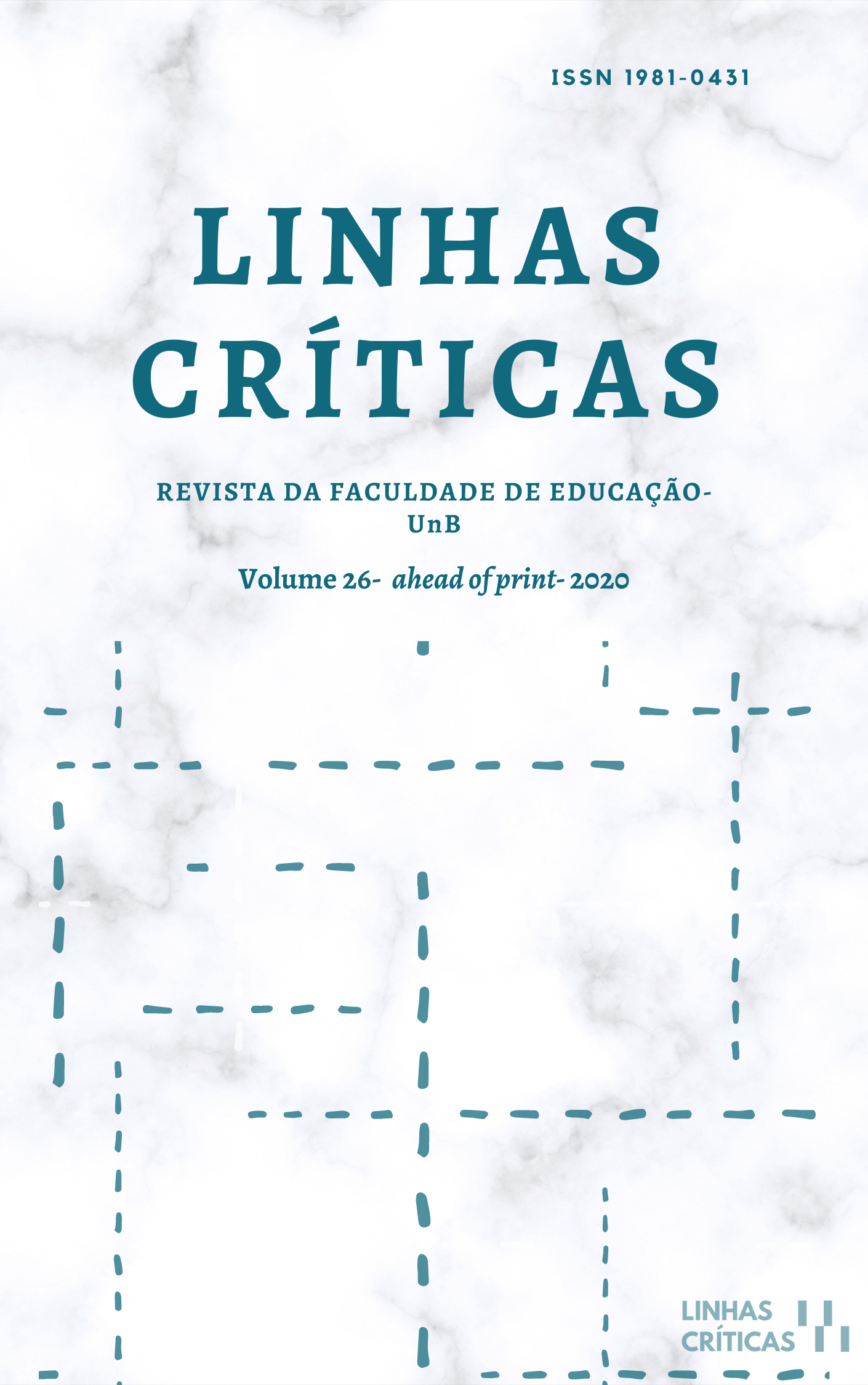Critical ethnography in educational research
interview with professor Jefferson Mainardes
DOI:
https://doi.org/10.26512/lc.v26.2020.33753Keywords:
Education, Search, Critical ethnographyAbstract
Socializing reflections on the elements that make up Critical Ethnography, as a research methodology, as well as its challenges is the objective of this text, which exposes an interview with Professor Jefferson Mainardes, Associate Professor of the Department and of the Education Program at Universidade Estadual de Ponta Grossa (UEPG). Expression researcher in the education field has a professional and academic trajectory committed to the critical training of teachers and to scientific research. The interview points out the potential of Critical Ethnography in the process of training researchers who seek alternatives to develop research organically linked to their professional practices within the scope of public policies. It is in this intervention space that research can be a resource to guarantee a voice for citizens, who experience multiple expressions of the social issue in their daily lives.
Downloads
References
Bachelard, G. (1996). A formação do espírito científico: contribuições para uma psicanálise do conhecimento. Contraponto.
Bernstein, B. (1999). Vertical and horizontal discourse: an essay. British Journal l of Sociology of Education, 20(2), 157-173. http://doi.org/10.1080/01425699995380
Carspecken, P. F. (1996). Critical Ethnography and Educational Research: a theoretical and practical guide. Routledge.
Hammersley, M., & Atkinson, P. (1995). Etnography: principles in practice. Routledge.
Mainardes, J. (2007a). Projeto DiferenciAção: criando classes mais igualitárias por meio do trabalho diversificado. UEPG. https://www.researchgate.net/publication/282157643_Projeto_diferenciAcao_criando_classes_mais_igualitarias_por_meio_do_trabalho_diversificado_2007
Mainardes, J. (2009). Pesquisa etnográfica: elementos essenciais. In J. A. Bourguignon (Org.). Pesquisa social: reflexões teóricas e metodológicas. Todapalavra.
Mainardes, J. (2017). A pesquisa sobre Política Educacional no Brasil: análise de aspectos teórico-epistemológicos. Educação em Revista, 33. http://doi.org/10.1590/0102-4698173480
Mainardes, J. (2018a). Práticas sistemáticas significativas: conceituação e implicações. http://doi.org/10.13140/RG.2.2.28253.05605
Mainardes, J. (2018b). A pesquisa no campo da política educacional: perspectivas teórico-epistemológicas e o lugar do pluralismo. Revista Brasileira de Educação, 23, e230034. http://doi.org/10.1590/s1413-24782018230034
Mainardes, J., & Marcondes, M. I. (2011). Reflexões sobre a Etnografia Crítica e suas Implicações para a Pesquisa em Educação. Educação & Realidade, 36(2), 425-446. https://seer.ufrgs.br/educacaoerealidade/article/view/17004/12916
Martins, J. de S. (1997). Exclusão social e a nova desigualdade. Paulus.
Patto, M. H. S. (1990). A produção do fracasso escolar: histórias de submissão e rebeldia. T a Queiroz.
Published
How to Cite
Issue
Section
License
Copyright (c) 2020 Camila Bourguignon de Lima, Angelo Eduardo Rocha, Jussara Ayres Bourguignon

This work is licensed under a Creative Commons Attribution 4.0 International License.
Authors who publish in this journal agree to the following terms:
-Authors maintains the copyright and grants the journal the right of first publication, the work being simultaneously licensed under the Creative Commons Attribution License which allows the sharing of the work with recognition of the authorship of the work and initial publication in this journal.
- Authors are authorized to enter into additional contracts separately, for non-exclusive distribution of the version of the work published in this journal (eg publish in institutional repository or as a book chapter), with acknowledgment of authorship and initial publication in this journal.
-Authorers are allowed and encouraged to publish and distribute their work online (eg in institutional repositories or on their personal page) at any point before or during the editorial process, as this can generate productive changes as well as increase the impact and the citation of published work (See The Effect of Free Access).



